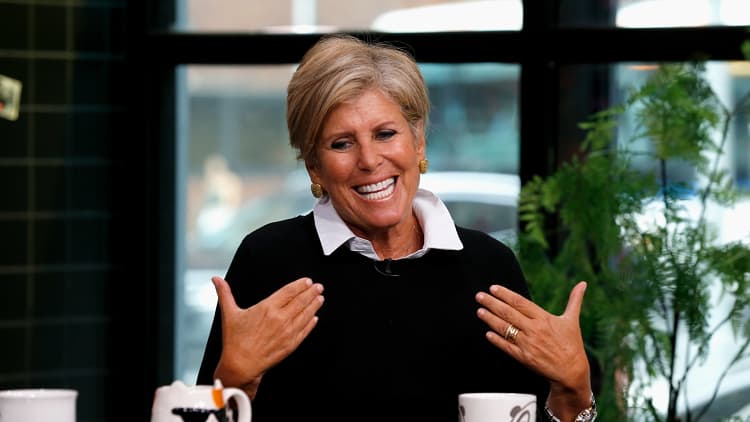Your 401(k) account may be one of the few places where you were saving for your future.
Now it all seems on hold as market values plummet and the whole world seems uncertain.
Created by a change to the 1978 tax code, the 401(k), as it has come to be known, lets American workers fund an investment account for retirement directly through payroll deductions.
You can save up to $19,500 in your 401(k) in 2020, plus $6,500 in catch-up contributions if you're age 50 and up. If your employer offers a match on contributions, that's even more money for your eventual retirement.
Recent changes stemming from the CARES Act, the stimulus package passed Congress and signed into law by President Donald Trump last week, give you greater access to the money before retirement without penalty. However, the easier borrowing or withdrawing is only for those impacted by the coronavirus outbreak.
More from Invest in You:
Nail your financial goals the way an Olympic medalist does
Panic shopping and fleeing to cash seem to go hand in hand
How to prepare for a family member with COVID-19
Another change to be aware of: Employers might cut back how much matching money they give employees for retirement funds.
It may feel pointless to sock money away into an investment account in a wildly swinging stock market. You also might think it's better to snatch out what's already there. But the market always comes back, experts say — and the company-sponsored investment account is still your ticket to a solid retirement.
Do a checkup
It's natural to be anxious about investing. Beginning investors with decades until retirement should run through a few points to allay their fears, says Dan Keady, chief financial planning strategist at TIAA, in Charlotte, North Carolina.
"Put down your time horizon and your purpose," Keady said. Remind yourself what you're saving this money for: retirement.
Then say to yourself that it's a long way off. "Young people have 20, 30, 40 years to make back what's happened," said David Blanchett, head of retirement research for Morningstar Investment Management.
Flight to safety
You may think fleeing the market is making one decision, but it's really two: when to exit and when to go back in. "That second decision winds up being problematic," said certified financial planner Kelly Campbell, chairman and CEO of Campbell Wealth Management in Alexandria, Virginia.
The market may continue to fall, which feels gratifying when your money is sitting safely in a savings account.
"But you're not going to go back in till the market's way back up," Blanchett said. "By the time you feel safe, the markets will be well past the point where you sold out." In other words, for the time your money was out of the stock market, you missed out on gains.
What goes down also goes up
People who study decades of stock market performance see recurring themes. Markets go up over the long haul. And the most attractive times to invest are also the times when there's the most fear.
"As Warren Buffett says, 'Be greedy when people are fearful and be fearful when people are greedy,' " Campbell said. "People are fearful now. It's time to start investing."
"The cheaper you can buy, the better for your long-term return," Blanchett said.

But this one's different
Campbell points out that the Great Depression was the worst market ever, and it eventually did come back up.
People were upset about the dot.com bust in 2000 and there were many dire predictions from 2008. "There was always something different," Campbell said. "This is different.
It's a whole new experience," he added. "But the stock market is still the stock market.
"It's always gone down and come back up."
SIGN UP: Money 101 is an 8-week learning course to financial freedom, delivered weekly to your inbox.
CHECK OUT: 7 side hustles you can do while working full time that can pay as much as $150 per hour via Grow with Acorns+CNBC.
Disclosure: NBCUniversal and Comcast Ventures are investors in Acorns.





